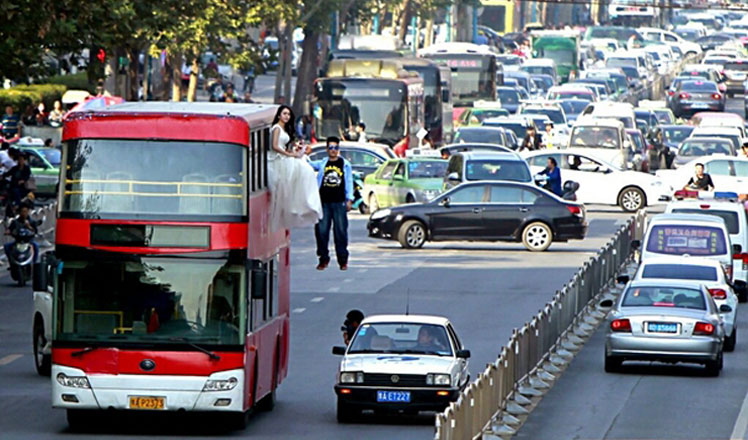'Black banks' targeted in latest anti-graft crackdown
Updated: 2015-10-16 07:22
By Zhang Yan(China Daily)
|
|||||||||
Hidden channels
Underground financial activity is a serious and complex problem in China's industrial heartlands, such as Guangdong province, and it is now spreading to other regions, according to Meng.
"These activities not only involve financial and securities crimes, but they inevitably become underground channels and money-laundering tools that enable corrupt officials and terrorist suspects to illegally send ill-gotten gains abroad," he said.
Loopholes in the banking supervision mechanism are easily exploitable, according to Liu Ming, an officer at the Economic Investigation Department of the Public Security Bureau in Shenzhen, Guangdong, the pilot city for China's reform and opening-up policy in the late 1970s.
"There is no requirement for the official banking sector to examine and approve cross-border financial transactions, and underground money dealers never conduct background checks into clients' identities or the source of their funds," Liu said.
According to the Foreign Exchange Management Regulation, national qualified enterprises are allowed to open bank accounts to conduct cross-border trade, but they are required to submit the relevant documents to the banking regulators and obtain official approval from SAFE to conduct cross-border transactions.
Profit and risk
In places where black banks are most active, such as Shenzhen, the exchanges are making huge profits. "They collude with their accomplices in China, including Hong Kong, and other places, such as the US, to form a complete, secret chain of interest," said Shu Jianping, a senior official with the Economic Investigation Department's anti-money-laundering unit.
According to Shu, when an underground bank receives funds from clients in China, the dealers immediately notify their accomplices overseas via instant-messaging platforms, such as WeChat and QQ, and stash the money in bank accounts they control to avoid supervision by the banking authorities. Later, their associates abroad transfer foreign currency, such as US or Hong Kong dollars, to the clients' overseas bank accounts, based on the daily exchange rate.
Other transfers take place via offshore companies registered in small African countries or island states, such as the Seychelles and the Cayman Islands. Fake documents, including bogus business contracts and invoices, are used to simulate trading activity, and transactions are then conducted through offshore bank accounts, he said.
In July, police in Guangdong arrested two underground lenders, Ye An'cheng and Zheng Lisheng, and smashed eight money-laundering dens in the Bao'an district of Shenzhen, according to the Shenzhen Public Security Bureau.
The two men and their accomplices worked with contacts overseas to run underground banks specializing in illegal foreign currency deals and online cross-border transactions. Clients were charged 3 to 5 percent for every 100 yuan processed. The sums involved are often in the millions, so the profits can be enormous, the PSB said.
Ye, Zheng and several accomplices are currently in the custody of the provincial prosecutors' department and will face charges soon, according to PSB officials.
"I wasn't worried about the consequences, but I now realize I was likely to be caught sooner or later if I committed these crimes. I apologize to the public," Ye told a reporter from Xinhua News Agency, who spoke with him at the detention center.
Ye said conducting cross-border transactions via underground banks is a risky undertaking because the dealers flee at the first sign of exposure, taking the money with them. "Also, if they discover that the client has obtained a large amount of money, some gangs will commit robbery, illegally detain or even kidnap the client to get their hands on it," he said.
- EU offers Turkey cash, closer ties for migration help
- ROK, Japan to hold defense ministers' talks next week
- 5 countries elected as non-permanent members of UN Security Council
- Obama slows pace of US troop withdrawal in Afghanistan
- Democratic rivals back Clinton on emails
- Myanmar gov't signs ceasefire accord with armed groups

 Shaolin monks display kung fu skills in London
Shaolin monks display kung fu skills in London
 'Newlyweds' are 'floating' on air in Zhengzhou
'Newlyweds' are 'floating' on air in Zhengzhou
 Buckingham Palace prepares for Xi's visit
Buckingham Palace prepares for Xi's visit
 Shanghai Fashion Week: We COUTURE
Shanghai Fashion Week: We COUTURE
 World's top 10 innovative economies
World's top 10 innovative economies
 Cui: China, US should share global vision
Cui: China, US should share global vision
 Speaking Mandarin attracts Chinese homebuyers in the US
Speaking Mandarin attracts Chinese homebuyers in the US
 Top 10 overseas destinations of National Day holidaymakers
Top 10 overseas destinations of National Day holidaymakers
Most Viewed
Editor's Picks

|

|

|

|

|

|
Today's Top News
Tu first Chinese to win Nobel Prize in Medicine
Huntsman says Sino-US relationship needs common goals
Xi pledges $2 billion to help developing countries
Young people from US look forward to Xi's state visit: Survey
US to accept more refugees than planned
Li calls on State-owned firms to tap more global markets
Apple's iOS App Store suffers first major attack
Japan enacts new security laws to overturn postwar pacifism
US Weekly

|

|








